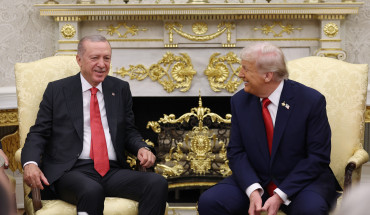Countering Iran's growing influence in the broader Middle East is a major goal of the Trump Administration. President Trump forcefully reinforced this policy on his recent visit to Saudi Arabia and Israel. But what does this mean? The administration has so far upheld the JCPOA with Iran and tolerated Iranian-backed proxies in the fight against ISIS in Iraq. Iran, meanwhile, has continued to build up its conventional military and missile capacities and doubled down on its asymmetric military networks in Syria, Lebanon, Iraq, and Yemen. U.S. bombs have struck Iranian-backed militias propping up the Assad regime in Syria. Is U.S. policy changing?
The Middle East Institute (MEI) hosted a conference titled Challenges in U.S. Iran Policy, which aimed to examine and assess the outlines of U.S. policy toward Iran, addressing its overall goals, the strategies being pursued, and the measurement of failure and success.
The Honorable Christopher A. Coons, D-DE
United States Senator, Delaware
Chris Coons was elected to the United States Senate in 2010 and is a member of the Foreign Relations Committee and the State and Foreign Operations Appropriations Subcommittee. Senator Coons has used his position on the Foreign Relations Committee to advocate for key foreign policy and national security priorities. He has worked with his colleagues to prevent Iran from acquiring nuclear weapons, supported comprehensive sanctions against the Iranian government, and pushed for aggressive implementation and enforcement of the Joint Comprehensive Plan of Action. Senator Coons believes the United States must remain globally engaged and utilize our diplomatic, military, and economic power to promote stability, support our allies, and counter terrorism and other forms of extremism.












